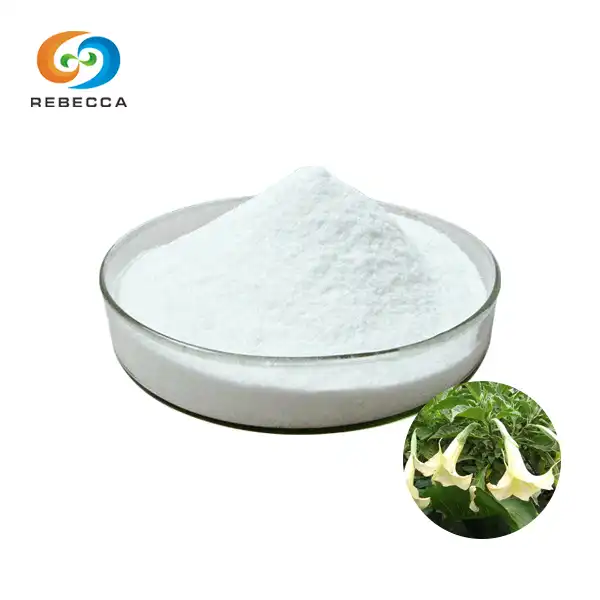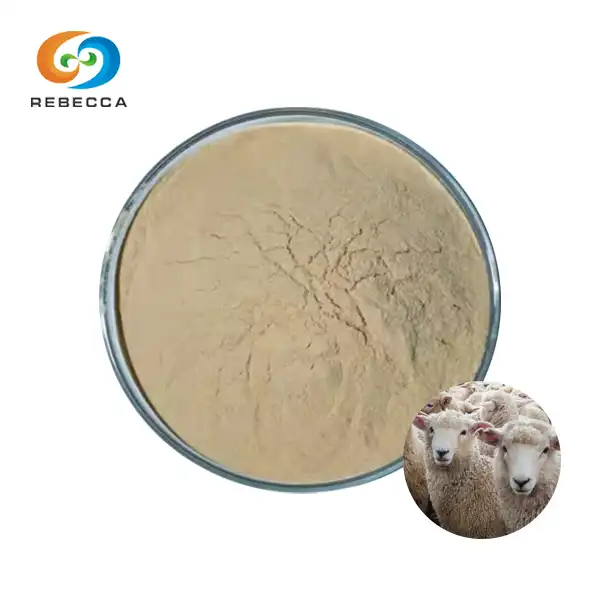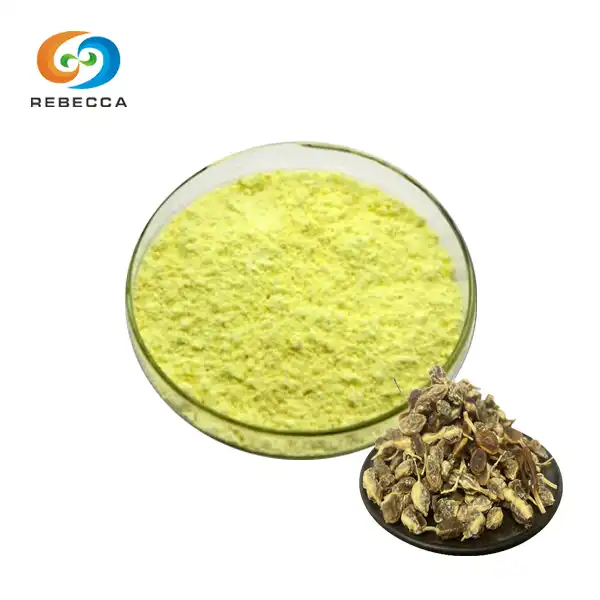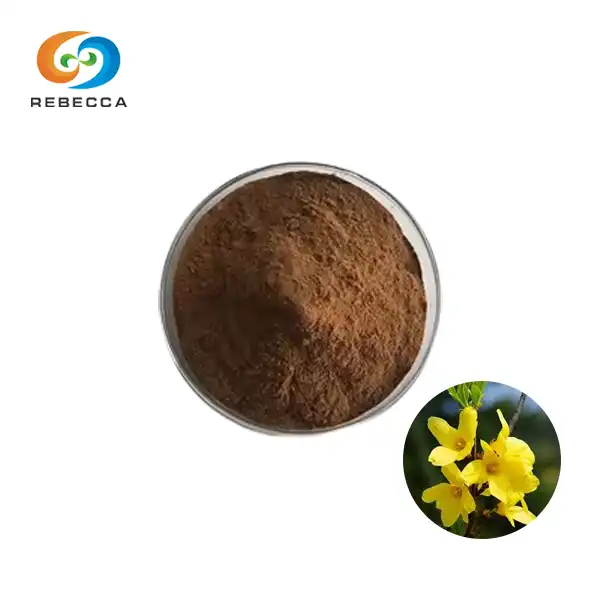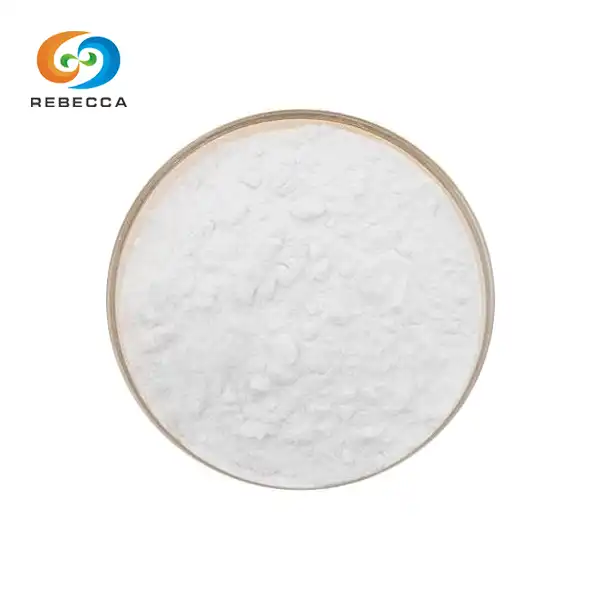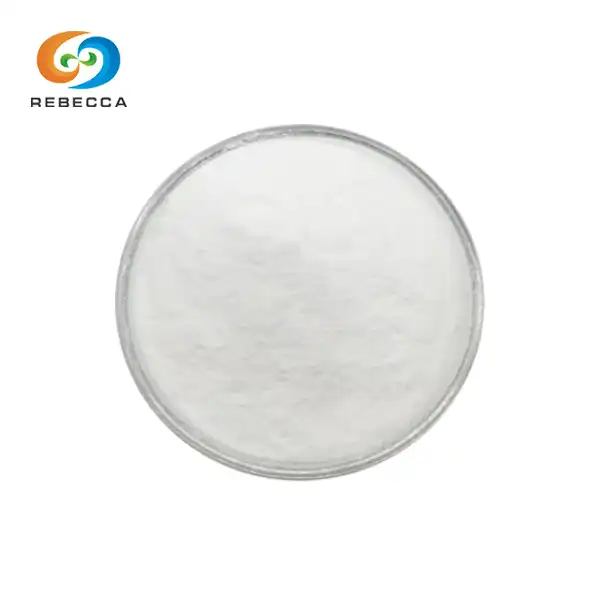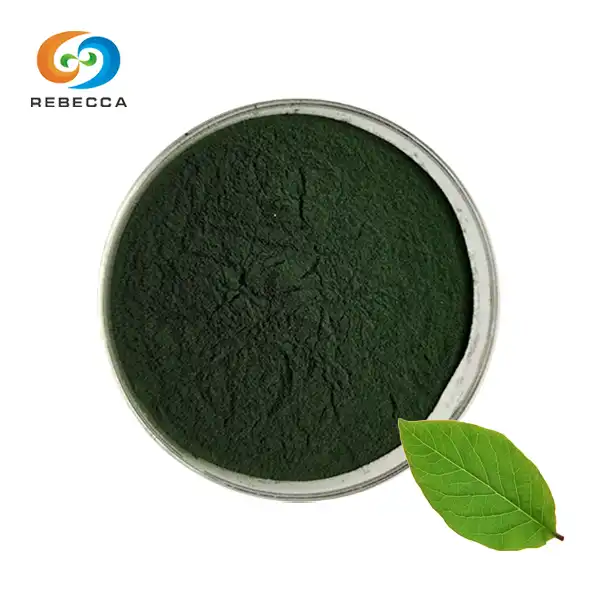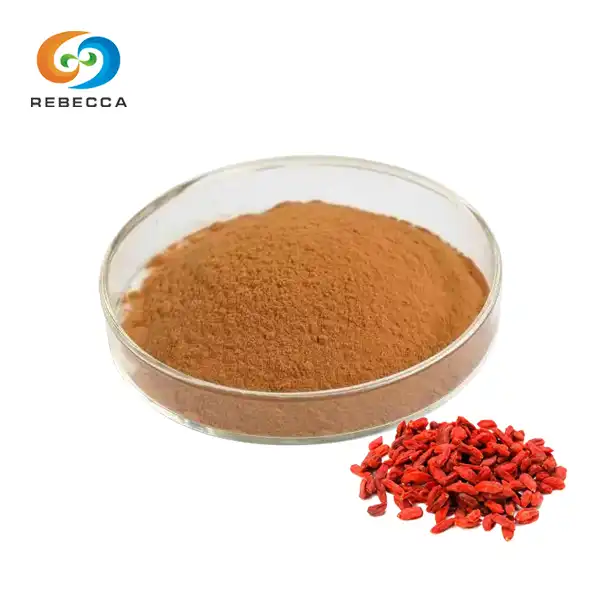What is piperine powder used for?
Piperine powder, derived from black pepper (Piper nigrum), has been a staple in culinary traditions and traditional medicine for centuries. This potent compound is now gaining recognition in modern health supplement formulations due to its numerous potential benefits. In this comprehensive guide, we'll explore the various uses of piperine powder, from enhancing flavors in the kitchen to its applications in traditional medicine and modern health supplements.

Culinary Uses of Piperine Powder in Enhancing Flavor
Piperine powder, the primary component responsible for black pepper's characteristic pungency, plays a crucial role in culinary applications. Its unique flavor profile and ability to enhance other tastes make it an indispensable ingredient in kitchens worldwide.
One of the most common uses of piperine powder is as a flavor enhancer. When added to dishes, it imparts a sharp, spicy taste that can elevate the overall flavor profile. Chefs and home cooks alike use turmeric and black pepper powder to add depth and complexity to a wide range of dishes, from soups and stews to marinades and rubs for meats.
Interestingly, piperine doesn't just contribute its own flavor; it also has the ability to enhance the perception of other flavors. This is due to its impact on the taste buds and olfactory receptors, making it an excellent addition to complex spice blends and seasonings. For instance, in Indian cuisine, black pepper is often combined with turmeric in dishes and spice mixes, creating a synergistic flavor effect.
Moreover, piperine can be used to create unique flavor combinations. Its pungent taste pairs well with sweet, sour, and umami flavors, making it versatile in both savory and sweet applications. Some innovative chefs even incorporate piperine into desserts, where its spiciness can provide an interesting contrast to sweet flavors.
In addition to its flavor-enhancing properties, piperine powder also serves functional purposes in cooking. It acts as a natural preservative, helping to extend the shelf life of certain foods. This preservative effect, combined with its antimicrobial properties, made black pepper a valuable commodity in ancient times, contributing to its nickname as "black gold".

Piperine in Traditional Medicine: Historical Applications
The use of piperine in traditional medicine dates back thousands of years, with various cultures recognizing its potential health benefits. In Ayurveda, the traditional Indian system of medicine, black pepper (and by extension, piperine) has been used for millennia to treat a wide range of ailments.
One of the primary traditional uses of piperine was as a digestive aid. It was believed to stimulate the production of digestive enzymes, helping to improve digestion and alleviate issues such as bloating and constipation. This traditional use aligns with modern research, which suggests that piperine may indeed enhance digestive function.
In traditional Chinese medicine, black pepper was used to treat digestive issues, relieve pain, and reduce inflammation. It was often combined with other herbs to create powerful medicinal formulations. The warming properties of black pepper were thought to help balance the body's energies and promote overall health.
Piperine was also traditionally used to enhance the bioavailability of other herbs and medicines. This practice, known as "yogavahi" in Ayurveda, involves using black pepper to increase the absorption and effectiveness of other substances. Modern research has confirmed this effect, showing that piperine can indeed enhance the absorption of various nutrients and compounds.
In addition to its digestive and bioavailability-enhancing properties, piperine was used in traditional medicine for its potential anti-inflammatory and pain-relieving effects. It was often applied topically or consumed orally to alleviate various types of pain, including headaches and arthritis.
The antimicrobial properties of piperine were also recognized in traditional medicine. It was used to help fight infections and boost the immune system. Some traditional practices even used black pepper as a preservative for food and medicines, taking advantage of its ability to inhibit the growth of harmful microorganisms.

How Does Piperine Support Modern Health Supplement Formulations?
In recent years, the traditional uses of piperine have been subjected to scientific scrutiny, leading to its incorporation into modern health supplement formulations. The unique properties of piperine make it a valuable addition to various supplements, enhancing their effectiveness and potentially offering additional health benefits.
One of the most significant roles of turmeric and black pepper powder in modern supplements is as a bioavailability enhancer. Research has shown that piperine can increase the absorption of various nutrients and compounds, including vitamins, minerals, and other phytochemicals. This property is particularly valuable in the context of herbal supplements, where bioavailability can sometimes be a challenge.
For instance, piperine is often combined with turmeric or curcumin supplements. Curcumin, the active compound in turmeric, has poor bioavailability when consumed on its own. However, studies have shown that combining curcumin with piperine can increase its bioavailability by up to 2000%. This synergistic effect has made turmeric and black pepper powder a popular combination in both culinary and supplement forms.
Piperine's potential to enhance nutrient absorption extends beyond just curcumin. It has been shown to improve the bioavailability of selenium, beta-carotene, coenzyme Q10, and various other nutrients. This property makes piperine a valuable addition to multivitamin formulations and other nutritional supplements.
In addition to its bioavailability-enhancing effects, piperine is included in some supplements for its potential direct health benefits. Some studies suggest that piperine may have antioxidant properties, helping to protect cells from oxidative stress. It may also have anti-inflammatory effects, which could be beneficial for various health conditions.
Furthermore, piperine is being investigated for its potential metabolic effects. Some research indicates that it may help improve insulin sensitivity and lipid metabolism, making it a compound of interest in supplements aimed at supporting metabolic health.
The potential cognitive benefits of piperine are also being explored. Some studies suggest that piperine may have neuroprotective properties and could potentially support cognitive function. While more research is needed in this area, these findings have led to the inclusion of piperine in some cognitive health supplements.
It's important to note that while piperine shows promise in many areas, more research is needed to fully understand its effects and optimal usage in health supplements. As with any supplement, it's always best to consult with a healthcare professional before adding piperine-containing products to your regimen.

Piperine Bulk Powder
Piperine powder, derived from black pepper, is a versatile compound with a rich history of use in culinary applications, traditional medicine, and modern health supplements. Its ability to enhance flavors, improve nutrient absorption, and potentially offer direct health benefits makes it a valuable ingredient in various contexts. As research continues to uncover the potential of piperine, we can expect to see its use expand in both culinary and health applications.
Rebecca Bio-Tech is a company specializing in the production of over 100 products, including Piperine Powder, with an annual capacity exceeding 2,000 tons. We operate three advanced production lines to ensure high quality and competitive pricing. For inquiries, please contact us at information@sxrebecca.com. We offer free samples and provide various documents such as MSDS and COA upon request.
References:
- Meghwal, M., & Goswami, T. K. (2013). Piper nigrum and piperine: an update. Phytotherapy Research, 27(8), 1121-1130.
- Takooree, H., Aumeeruddy, M. Z., Rengasamy, K. R., Venugopala, K. N., Jeewon, R., Zengin, G., & Mahomoodally, M. F. (2019). A systematic review on black pepper (Piper nigrum L.): from folk uses to pharmacological applications. Critical reviews in food science and nutrition, 59(sup1), S210-S243.
- Srinivasan, K. (2007). Black pepper and its pungent principle-piperine: a review of diverse physiological effects. Critical reviews in food science and nutrition, 47(8), 735-748.
- Liu, Y., Yadev, V. R., Aggarwal, B. B., & Nair, M. G. (2010). Inhibitory effects of black pepper (Piper nigrum) extracts and compounds on human tumor cell proliferation, cyclooxygenase enzymes, lipid peroxidation and nuclear transcription factor-kappa-B. Natural product communications, 5(8), 1934578X1000500805.
- Shoba, G., Joy, D., Joseph, T., Majeed, M., Rajendran, R., & Srinivas, P. S. (1998). Influence of piperine on the pharmacokinetics of curcumin in animals and human volunteers. Planta medica, 64(04), 353-356.
